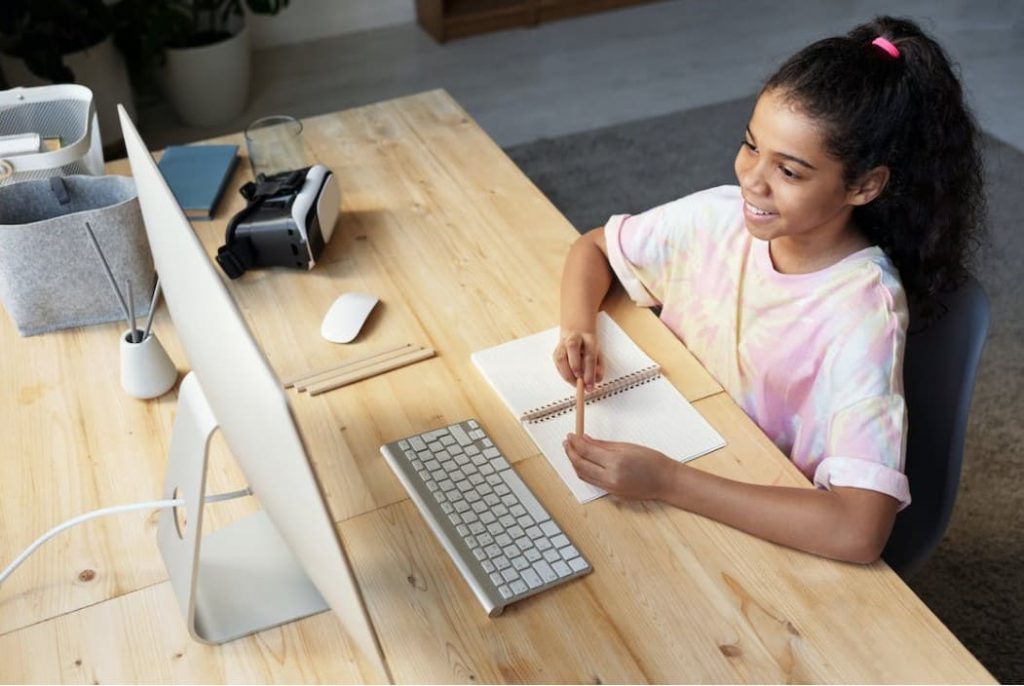- The legal age a child can be left home alone in the US is 18 years old
- There are some states that have exceptions to this rule, like if the child is mature enough or there is another adult present in the home
- If you do leave a child home alone, make sure they have your contact information and know how to reach you in case of an emergency
- Give them a list of things they are and are not allowed to do while you’re gone
- Check in on them periodically to make sure they’re doing okay
- When Can You Leave a Child Home Alone: Safety Tips
- If something happens while you’re away, don’t blame yourself – accidents happen

Leaving a Child Home Alone and the Law
The safety of children is always a top priority, which makes the legality of leaving a child home alone an important consideration for parents. Depending on the age of the child and local laws, it can be illegal to leave a child at home without adult supervision for any period of time.
In most places, there is no hard-and-fast rule about how old a child must be before they are legally allowed to stay at home by themselves. Generally speaking however, children under 8 years of age should not be left home alone. The exact law varies from state to state – some states even require kids to be as old as 12 before they’re legally allowed to remain at home without parental guidance like Maryland and Delaware. It’s best to look into each state’s regulations on the matter before making any decisions.
It’s also recommended that when leaving children aged 8 or older at home unsupervised that parents provide clear instructions on what is expected such as sticking to their established bedtime curfew, not opening the door for strangers and being aware of emergency contact numbers in case anything unexpected happens.
Ultimately, it is up to parents to decide if their child is mature enough and responsible enough to remain alone safely at home – but it’s always wise to proceed with caution and make sure you know your local laws regarding guardianship in order to avoid any legal issues or penalties down the line.
Parents should also be aware of the state specific laws when it comes to leaving a child home alone. Depending on where parents live, there may be different legal requirements regarding when and for how long a child is allowed to be left unsupervised.
Each state has its own policies and regulations regarding the legal age at which a child may be left home alone. Generally, these rules fall into three categories:
- Ages 7 & Under – Should not be left alone for any period of time.
- Ages 8 to 10 Years – Should not be left alone for more than 1½ hours and only during daylight and early evening hours.
- Ages 11 to 12 Years – May be left alone for up to 3 hours but not late at night or in circumstances requiring inappropriate responsibility.
- Ages 13 to 15 Years – May be left unsupervised, but not overnight.
- Ages 16 to 17 Years – May be left unsupervised (in some cases, for up to two consecutive overnight periods).
It is important that parents familiarize themselves with their state’s laws before leaving their children unattended. For instance, some states require written permission from a parent or guardian if a minor is left unattended for an extended period of time, while others allow minors as young as 14 years old to stay home unaccompanied for short periods of time.
AL: 'No specific age',
CA: 'Under 18 years old',
NY: '14 years old'
When it comes to leaving a child home alone, parents should be aware of the legal guidelines set in place by their state. Generally, each state has its own policies and regulations regarding the legal age at which a child may be left home alone.If you’re a parent, you know that the welfare of your children is always your first priority. But sometimes, circumstances arise where you have to leave them home alone. Whether it’s for a quick errand or an extended period of time, it’s important to know when it’s safe to do so – and when it isn’t. Here are some guidelines to help you make the best decision for your family.
The legal age a child can be left home alone in the US is 18 years old
Every parent wants their child to be safe and secure, so when it comes to leaving them unaccompanied at home, there are many considerations. According to US family law, the minimum legal age a child can be left home alone is 18 years old. This age ensures that they have the maturity, understanding, and practical skills needed to stay safe while in a potentially dangerous situation. Though parental rights allow discretion on this matter, parents should also consider their own liability in terms of any harm or neglect that may occur due to the decision. It is important for parents to remember that their children’s safety is always paramount, and it is ultimately their responsibility if an unfortunate incident were to take place while they are away from their kids.

When Can You Leave a Child Home Alone: Safety Tips
It’s important to know when your child is ready to stay home alone. It can be tricky to decide when it’s time, but there are some key safety considerations you need to keep in mind.
First, make sure your child has the maturity level and skills necessary for staying home alone. Your child should understand basic safety rules, such as not opening the door before checking who is outside, not interacting with strangers, and calling 911 if there is an emergency. They should also understand the home’s emergency evacuation plan, just in case a fire starts while they are home alone.
Additionally, consider the physical layout of your home; if possible have another room with an accessible window or door that could be used as a quick escape route in case of emergency. Check that all locks and windows are secure before you leave them alone and make sure to remove any hazards from around the house—such as cleaning supplies or easily-accessible breakable items—that could pose a threat when left unattended.
Finally, try leaving your child alone for short periods at first before having them stay home completely unsupervised for longer stretches of time. If your child feels uneasy about being left alone talk to them about their anxieties before progressing to longer stays; give them a way to reach out (e.g., writing down phone numbers for family members) if they need help or reassurance during these times.
With proper preparation and conversation you can provide comfort and security for both you and your child when considering leaving them at home alone!
There are some states that have exceptions to this rule, like if the child is mature enough or there is another adult present in the home
Although most states have laws prohibiting children under the age of eighteen from being left home alone, there are certain situations where this is allowed. These states recognize that with the right maturity and circumstances, a child can still handle such responsibility well. The primary exceptions to this rule are when a child is judged mature enough to be on their own or if another adult is present in the home. This allows parents to make decisions that best suit their living situation and family dynamics while ensuring their children’s safety and well-being at all times.
If you do leave a child home alone, make sure they have your contact information and know how to reach you in case of an emergency
When a parent leaves a child home alone, it’s important to make sure the caregiver has access to all the necessary contact information if something were to happen. Going over how to use a phone and creating an emergency action plan should be top priorities. Make sure they know who in your family or network of friends is nearby that could help in case of an emergency. Additionally, remind the caretaker of your return time, so that you are available for any additional support needed. It can be scary for children being left alone, but by giving them plenty of support beforehand it can make all the difference in making sure they have a safe and positive experience.
Give them a list of things they are and are not allowed to do while you’re gone
When you leave for a few days, it can be difficult to think about all the things that may come up while you’re away. To ensure that your house and everything inside remains in the condition you left it in, make sure to provide your family with a list of expectations for when you are gone. Let them know what activities are okay and what activities are a no-go – from ensuring no wild parties take place at the house, to eating food only from the pantry and not spending too much of your hard-earned money on frivolous items. Make sure to be clear and provide them with a succinct list to follow so that everyone is on the same page. After all, coming home after an extended absence should be stress-free!
Check in on them periodically to make sure they’re doing okay
Checking in on others to make sure they are doing as well as can be expected is an act of kindness that goes a long way. Even if you feel like the other person wouldn’t appreciate your attempt, simply knowing that you took the time and effort to reach out will ensure them that someone cares enough about their wellbeing. There is no wrong way to check in on others, whether it is with kind words, a small gesture of appreciation, or just sending an encouraging message; these acts of kindness will help create strong and supportive bonds. Practicing these kinds of thoughtful acts can turn any relationship into meaningful one so make sure to check in periodically!
If something happens while you’re away, don’t blame yourself – accidents happen
It’s easy to assume that if something unwanted happens when you’re away, you are at fault for not being there. After all, being physically present with your loved ones is comforting and provides an added sense of security. But life is unpredictable and things can happen even when you’re around. Accidents have no consideration for our schedules or whereabouts and can occur despite our best efforts to prevent them. Instead of blaming yourself and questioning what could have been done differently, place your emphasis on responding swiftly and positively to the current situation in order to restore a sense of calm as soon as possible.


